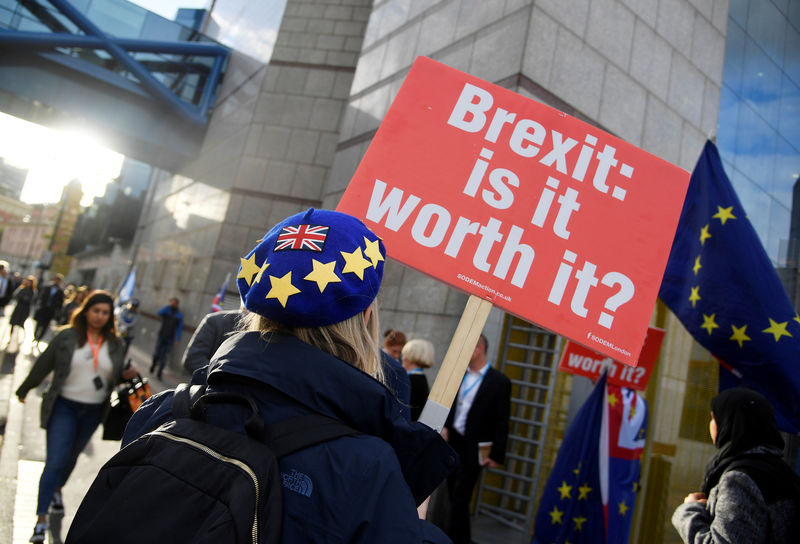(Bloomberg) -- British hopes for a sweeping post-Brexit trade deal with the U.S. are nothing more than a pipe dream, a senior U.K. official said, dismissing a key argument put forward by supporters for leaving the European Union.
Even Prime Minister Theresa May’s closest allies realize any agreement with Donald Trump’s administration will be lopsided and prioritize the interests of the world’s biggest economy, the official said, speaking on condition of anonymity because a U.S. trade accord remains a top government priority.
As an EU member, the U.K. is unable to negotiate its own trade deals and Brexiteers in May’s Conservative Party see pursuing accords with countries like the U.S., India and Australia as a key prize for leaving the bloc. Trade Secretary Liam Fox has held several rounds of preliminary discussions with his American counterparts to prepare for formal talks to begin after Brexit.
But there are already signs Trump’s government will play hardball. Bloomberg reported this week the U.S. is threatening to block Britain from joining a 46-nation public procurement agreement when it leaves the EU in March, a move that would deny British companies access to a near $2 trillion marketplace.
The idea that a protectionist Trump administration would offer the U.K. anything other than unfavorable terms is completely unrealistic, the senior British official said. The government would also have to accept U.S. demands on agriculture, the person said.
Chlorinated Chicken
Opponents of Brexit argue a U.S. trade deal means opening up U.K. markets to chlorine-treated chicken and genetically modified crops.
May’s own Brexit blueprint could also make a trade deal more difficult. The prime minister wants to stick to the EU’s common rulebook for goods after Brexit, while being freer to diverge on services.
Nations in the EU and European Free Trade Association account for 59 percent of the U.K.’s imports and buy 48 percent of its exports, government data show. The U.S. accounts for 11 percent of U.K. imports and is the biggest single destination for British exports, worth almost 100 billion pounds ($130 billion) a year or 18 percent of the total.
Trump’s officials have called on the British government to ditch EU regulations entirely, and the president himself complained about the current terms of trade between the U.S. and EU when he visited May in July. EU nations, he said, “treat the United States horribly.”
“They have barriers that are beyond belief -- barriers where they won’t take our farm products,” Trump said, urging May to ensure whatever withdrawal deal she strikes with the EU, “just make sure we can trade together.”
